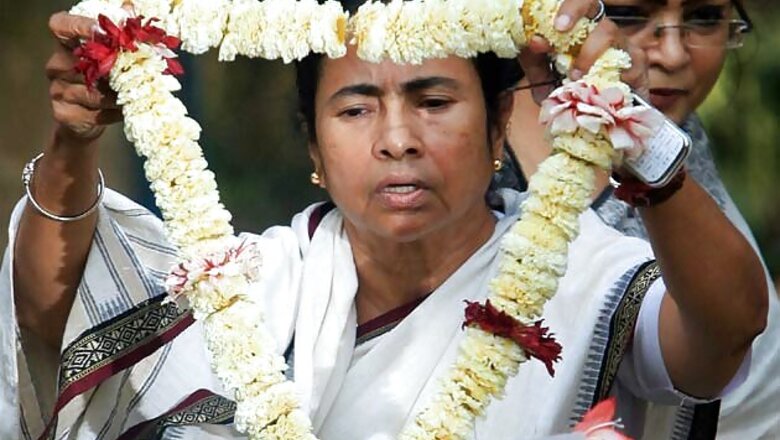
views
Is Mamata Banerjee more powerful than the Prime Minister of India? What mandate does she have? Should a whimsical politician, for her whimsical gains, be allowed to have a free run, devoid of any accountability? Isn't the fact that an ally holding the government to ransom, thereby stalling crucial policy decisions, a sad reality of the Indian polity now? What is the way forward, or out?
Mamata's opposition to the UPA's proposal of a National Counter-Terrorism Centre (NCTC) is only the latest in a series of embarrassments, pain and heartburn the good, old Didi from West Bengal has caused to the Sonia Gandhi-led Congress. Although the speculation over an ambitious East Coast political front to take on the UPA can easily be laughed off, the fact remains that Mamata refuses to fall in line when there is a roll-call of the UPA allies. The Teesta Water Treaty with Bangladesh, FDI in retail, the controversy over appointing Lokayuktas etc are a few recent examples of where the Congress found itself standing vis-a-vis the ally-turned-enemy.
There is a sadder part to the whole story. It is clear that Mamata's hostile posturing against the ruling disposition at the Centre is with the sole purpose of extracting as much as she can to run West Bengal. It would have been a noble objective given the enormous amount of work to be done, after the Left Front left the state in a shambles. However, instead of having a credible programme for developing West Bengal, reports from the ground show that Mamata has been more concerned with populism and not real work.
Mamata is once believed to have told a high-level business delegation that was interested in investing in West Bengal to find a way of importing more Hilsa fish from Burma to Kolkata so that the city gets to buy them cheap! The problem is the street-fighter that Mamata has been all her life has seriously affected her thinking in terms of serious policy decisions, and has instead made her a populist rabble-rouser as opposed to a visionary that Bengal needed at this juncture.
In fact, things have been downhill for her since she became the Chief Minister of West Bengal in the summers of 2011. Her instant flip-flop (not to be confused with her hawai chappal) on the Naxal question surprised many. She disowned the very people who backed her when you needed votes. Riding on a strong anti-incumbency against the ruling Left as well as a strong pro-Naxal wave in the Red strongholds of West Bengal, she presented herself as a working-class hero and stole what the world now calls an unprecedented and historic victory.
Sadly, 'working' and 'class' are words that can no longer be put in a sentence with Mamata Banerjee.
Some people in Bengal are already wary of the Mamata (mis)rule. It's a state that knows its mind. It's a state that punishes well too. Mamata should realise that the great wave she once rode to power has ebbed, and that the logic of anti-incumbency now applies to her government. We may have a situation soon where a popular nostalgia for the Left rule returns in Bengal.
Ironically, Mamata may be hastening its advent with her insistence on describing everything that’s going wrong under her dispensation – as many things inevitably will – as a Left conspiracy. Her statements border on the absurd sometimes – most notably, when she declared that the babies who had died in state-run hospitals were conceived during Left rule, or the frequent incidents of the rape of women across the state is a Left conspiracy!
It’s about time Mamata stopped being a PM that nobody wants in Delhi and assume the charge of a CM in Kolkata. She must remember that she has won the Assembly elections, which means she must now govern, not disrupt.



















Comments
0 comment